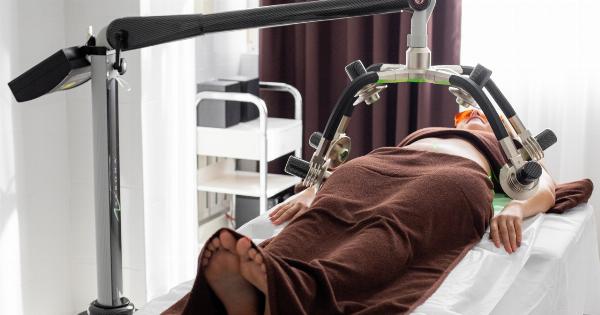Non-alcoholic fatty liver disease (NAFLD) is a condition where excess fat builds up in the liver, resulting in inflammation and damage.
This condition is not caused by excessive alcohol consumption but rather by factors such as obesity, insulin resistance, and a sedentary lifestyle. It is estimated that over 100 million people in the United States have NAFLD.
Symptoms
Most people with NAFLD do not experience any symptoms in the early stages. However, as the disease progresses, some people may experience the following:.
- Fatigue
- Pain in the upper right abdomen
- Swollen abdomen
- Yellowing of the skin and eyes (jaundice)
Diagnosis
NAFLD is often discovered during routine blood tests or when a person is being treated for another condition. If your doctor suspects that you have NAFLD, they may perform the following tests:.
- Blood tests to check for liver damage
- Ultrasound, CT scan, or MRI to view the liver and determine the amount of fat present
- Liver biopsy to confirm the diagnosis and determine the severity of the disease
Treatment
There is no specific treatment for NAFLD, but lifestyle changes can slow or even reverse the progression of the disease. Here are some steps you can take:.
- Lose weight through a healthy diet and regular exercise
- Avoid refined carbohydrates and sugary beverages
- Limit alcohol consumption
- Control your blood sugar if you have diabetes
- Lower your cholesterol levels
Complications
If left untreated, NAFLD can progress to a more serious condition called non-alcoholic steatohepatitis (NASH), which can eventually lead to cirrhosis and liver failure. Other complications of NAFLD include:.
- Portal hypertension
- Liver cancer
- Cardiovascular disease
Prevention
The best way to prevent NAFLD is to live a healthy lifestyle:.
- Eat a balanced diet
- Exercise regularly
- Maintain a healthy weight
- Avoid excessive alcohol consumption
Support
Living with NAFLD can be challenging, but there are resources available to help you. Consider joining a support group or seeking the advice of a healthcare professional.
They can provide guidance on managing your symptoms and making positive lifestyle changes.
Conclusion
NAFLD is a common condition that can be managed through lifestyle modifications. If you suspect that you have NAFLD, it is important to speak with your doctor and take the necessary steps to improve your health.
By eating a healthy diet, exercising regularly, and avoiding alcohol consumption, you can reduce your risk of developing this condition and maintain a healthy liver.


























